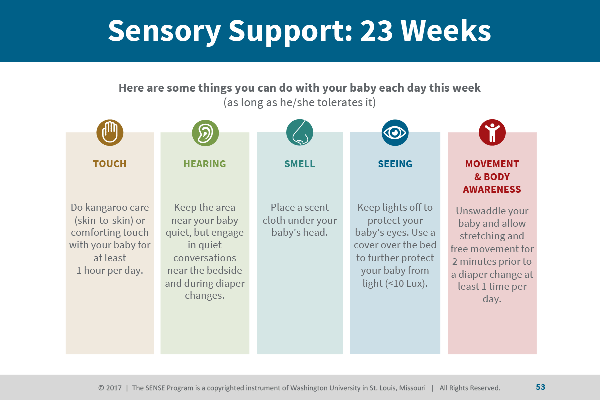
OTR’s Personal and Professional Experiences Inspire Improved NICU Stays for Infants and Parents
Bobbi Pineda, an OTR from California, is being recognized for her significant contributions to the field of neonatal therapy.

Bobbi Pineda, PhD, OTR/L, CNT
Assistant Professor, Chan Division of Occupational Science and Occupational Therapy & Keck School of Medicine, University of Southern California
Adjunct Professor, Washington University School of Medicine
NNNS Trainer, Brown Center for At-Risk Infants and Children, Brown University
Location: California
Certified in 1992
An Innovation Inspired by Personal Experience
A child’s illness and hospitalization are unprecedented life events for which no parent can ever be prepared. As a mother with first-hand experience of having children in the neonatal intensive care unit (NICU), Dr. Bobbi Pineda has dedicated years of research and program development to improve not only the developmental outcomes of high-risk infants but also the overall experience for families who have a child in the NICU.
The NICU environment is usually loud and bright, with infants often exposed to painful medical procedures around the clock. Parents with children in the NICU experience a wide range of emotions—lack of confidence, exhaustion and fatigue, fear, stress, frustration, pride, happiness, and relief.
Seeing what her own babies experienced in the NICU, along with her passion to improve families’ experiences, Dr. Pineda was inspired to develop the Supporting and Enhancing NICU Sensory Experiences (SENSE) program. The program assures fragile infants that the world is not just about heel sticks or painful eye examinations. It provides them with a safe environment to grow, replicating what they would have inside the womb. Meanwhile, the parents are encouraged and equipped with tools and skills to actively participate in their child’s daily growth and learning, including providing age-appropriate, positive sensory exposures to their infants each day of the NICU hospitalization.
Dr. Pineda’s innovative SENSE program has made a powerful impact on hundreds of families around the country, which is why she is the recipient of both the NBCOT Innovation Award and the NBCOT Impact Award.
“We have been using the SENSE in our NICUs since it was first made available in 2018 and have found it to be an invaluable tool for families. As a clinician in the NICU for more than 20 years, I can honestly say that the SENSE is the only updated, family-friendly tool of its kind. Dr. Pineda has made many additions to developmental care in the NICU, and the SENSE is a tangible example of her work, which will serve clinicians and families now and in the future.”
Kati Knudsen, PT, MPT, CNT, PCS, DCS, CL
Making an Impact Using OT Core Values
The care in the NICU can often be narrowed to a medical model that focuses on the survival of the infant. The SENSE program embodies the core values of occupational therapy practice—holistic, individualized, and evidence-based care. While the illnesses of infants in the NICU warrant significant medical attention, the SENSE program advocates for the importance of person, environment, and occupation factors. Reading infant cues, which is one of the hallmarks of the program, reminds everyone in the NICU that every infant’s tolerance and preference to touch, smell, sight, sound, and movement are unique and should be respected.
The parent educational materials Dr. Pineda created for the SENSE program are designed to empower and inform parents about sensory development, parenting in the NICU, reading infant cues, and much more. For parents who feel isolated or uncertain of their role in the NICU, the SENSE program provides a step-by-step guide for how they can actively participate in their child’s daily growth and learning.

Copyright 2017. The SENSE Program is a copyrighted instrument of Washington University in St. Louis, Missouri. All rights reserved.
Producing Positive Results
Pilot studies on the SENSE program have shown that it improves both developmental outcomes of infants and the mental health of their caregivers. Two hundred hospitals around the world have purchased the program to optimize the quality of neonatal care.
Dr. Pineda offers an ongoing mentorship for parents and therapists who are using the SENSE program. Therapists can seek additional resources on the program either to improve their daily care or to advocate for systemic changes within their hospitals. Webinars, which can be accessed for free, encourage and enable neonatal therapists to stay informed on the most up-to-date evidence and discovery in neonatal therapy. The SENSE program has not only impacted the lives of infants and their families but also the health care professionals who are at the forefront of providing care in the NICU.
“In the beginning, I was very worried. I thought he was fragile. He was going to break. I didn’t really feel comfortable holding him, and I didn’t really like changing his diaper because he was so tiny. By the end of the [SENSE program], I was doing it all.”
NICU Parent
Text description of sensory support graphic from the SENSE program.
Sensory Support: 23 Weeks. Here are some things you can do with your baby each day this week (as long as he/she tolerates it)
- Touch: Do kangaroo care (skin-to-skin) or comforting touch with your baby for at least 1 hour per day.
- Hearing: Keep the area near your baby quiet, but engage in quiet conversations near the bedside and during diaper changes.
- Smell: Place a scent cloth under your baby's head.
- Seeing: Keep lights off to protect your baby's eyes. Use a cover over the bed to further protect your baby from light (<10lux).
- Movement & body awareness: Unswaddle your baby and allow stretching and free movement for 2 minutes prior to a diaper change at least 1 time per day.